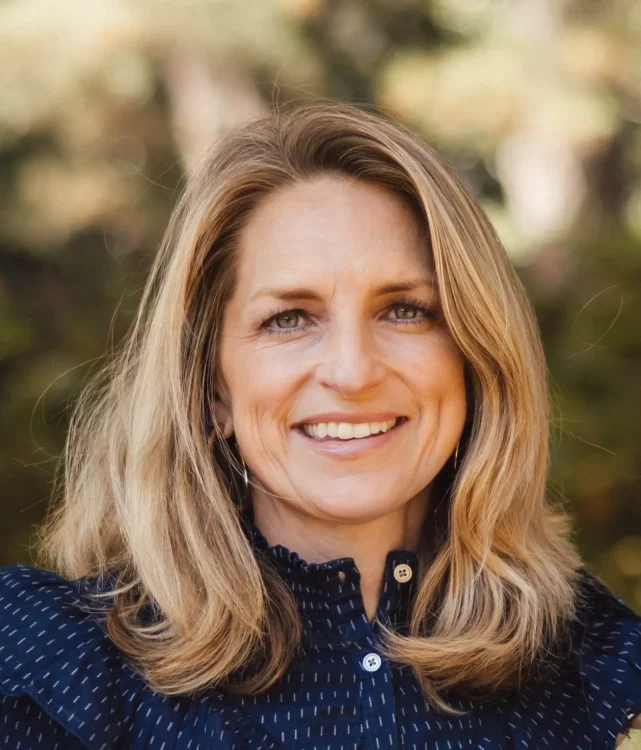John and his wife, Debbie Taylor Houchens (’80-’83), live and serve in Kampala, Uganda.
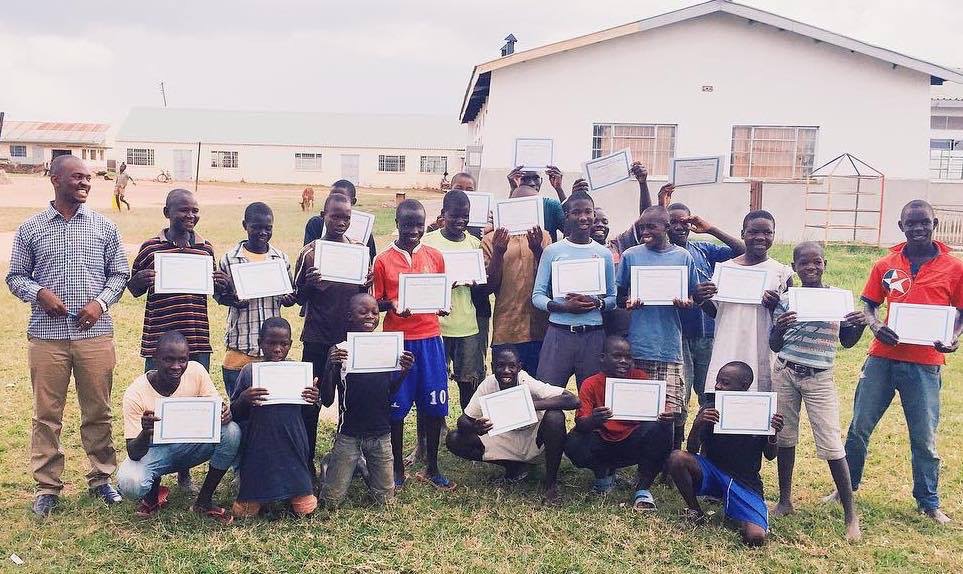
Why did you and Debbie decide to move to Africa?
For Debbie it was an almost-forgotten calling from when she was a student at Point University in the early ’80s. For John, it was a growing “oughtness” . . . a growing pull . . . gravitation toward ministry in a cross-cultural context that started about fifteen years ago.
And it wasn’t necessarily “Africa,” but a place where it made sense to serve… where we sensed a fit. The ministry opportunity with Sixty Feet and Uganda seemed to be a good fit for us. We prayed and sensed the timing was right. It was almost a “now or never” type feeling for us. Kids are out of the house . . . no responsibility for parents . . . we were not spring chickens anymore, so the time seemed right.
Tell us about Sixty Feet – what the organization does and whom you serve.
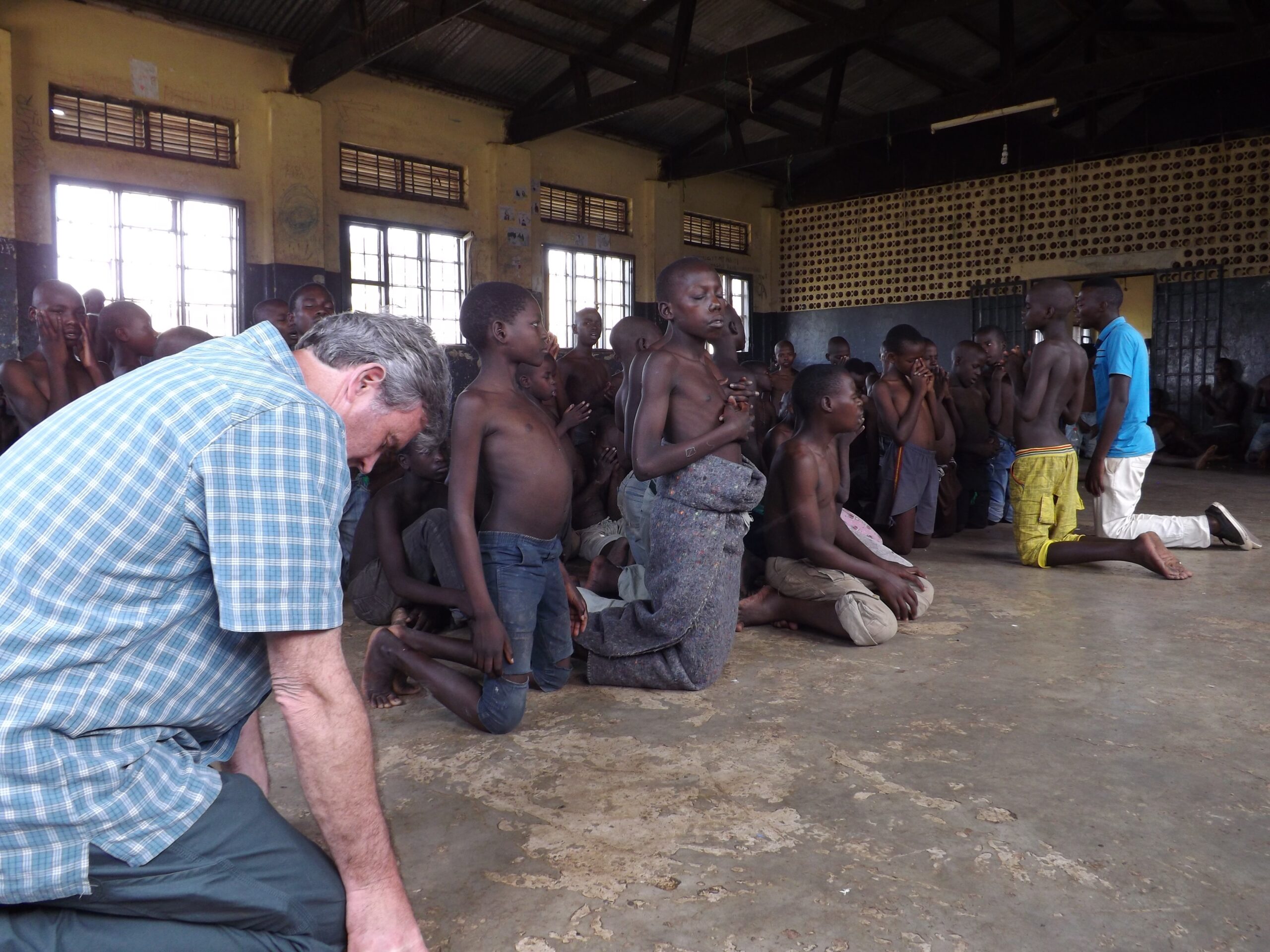
Our work begins with children and teens detained in one of Uganda’s juvenile justice facilities or in the national reception center for abandoned and/or abused children. It ends when those children know the love of Christ and have been afforded opportunity for a different trajectory for themselves and their families.
Children and teens find themselves in these facilities for any number of reasons. But at the heart of every reason is a broken relationship. It might be a broken relationship with parents, it might be a broken relationship with self, a broken relationship with the Father in Heaven, a broken relationship with a system that produces material poverty. Of the 188 countries rated on the Human Development Index, Uganda ranked 163 . . . tied with the poorest neighbor to the United States – Haiti.
I like to tell people we have a broad range of inputs to a specific population – children placed legally in the juvenile justice facilities we serve, children who have been abandoned to them, and children placed there illegally. Through teaching God’s Word, worship experiences, medical care, legal advocacy, educational sponsorship, vocational training, biblical counseling, and family reunification services, we preach the Good News of Jesus Christ.
Through Sixty Feet’s service to the facilities and children over the past seven years, we have built good relationships with Ugandan government officials who manage these facilities and the processes. We now are coming to a place when we can influence systemic and sustainable change.
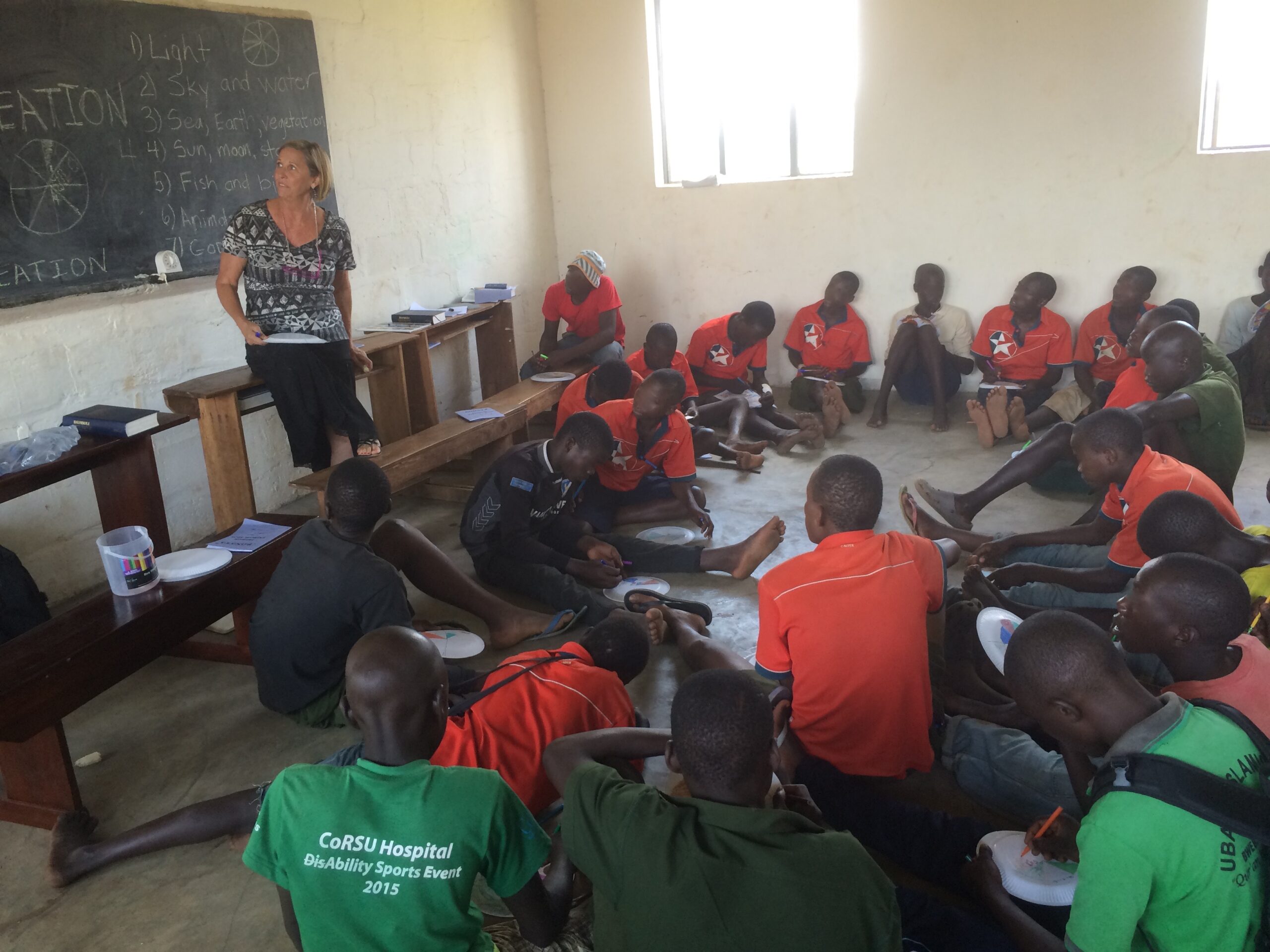
What about Sixty Feet’s mission spoke to you personally?
It focused on the least of the least . . . it was kind of a Matthew 25-type emphasis. It seemed like an impossible situation to bring hope into. The Gospel was preached in both Word and deed. There was opportunity for a more holistic approach to living and preaching the Good News. There was immediate resonation and connection with the Board that founded and initiated the ministry. They were all in, so to speak.
How did your Point experience help prepare you for what you are doing now?
First, let us say how fundamental and essential Point University (Atlanta Christian College back in the day!) was to our Christian development and discipleship. Before we met at Point, Debbie and I had made some bad choices in life. But Point University – students and professors and staff – loved us, mentored us, and taught us about Jesus. And they taught it not just in the classroom, but with their lives. Is there anything more important than that? We are forever grateful for the impact Point had in our lives. It set us on a path that gave us purpose, a foundation for our marriage, and a life in Christ that we are eternally grateful for.

What is your favorite thing about life in Uganda?
What we are being taught about community, relationships, patience, collaboration, dependence on God, faith in the Father’s goodness, and that he is ever-present. Process is more important than result; people are more important than tasks. Sometimes, because of our sinful tendencies we don’t always see those truths, so it takes a shock . . . a radical change in our circumstances, to open our eyes to those truths. Uganda and its people have done this for us.
We live in an urban context. Kampala is the capital, with about 1.5 million people. So, when people think about sub-Saharan Africa, they usually don’t think about pollution, horrible traffic, stop signs no one obeys, and large offices next to sprawling slums. But that’s our context. And yet we are not far from some of the most beautiful places God created – landscapes and sunrises and wildlife. It is a fantastic reminder of the infinite creativity of the Father in Heaven. Just amazing.
What would readers be surprised to learn about Africa?
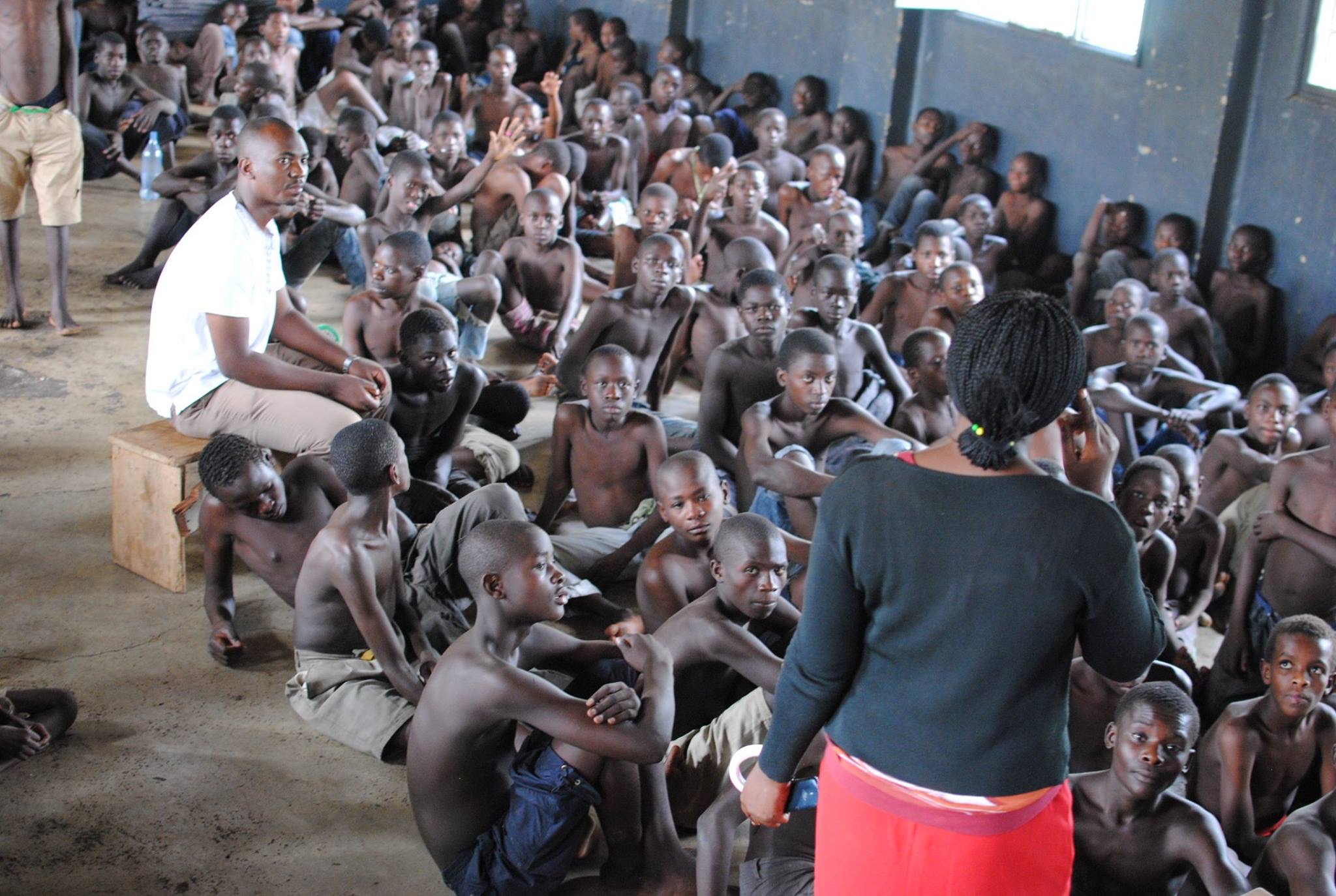
That’s it’s made up of 54 diverse and radically different countries. That Africa is bold and beautiful and big. That it is not monolithic . . . that it is not driven by a single story, even though the images and the stories we read about in the West tend to paint a single story of Africa and Africans.
That it is not romantic . . . that it’s not simple . . . that it’s not always easy. That Africans know the solutions to African problems.
That God is alive and well here . . . creating and shaping and transforming. The center of Christianity, so to speak, is moving here.
How can alumni support what you are doing?
We would love for you to know the ways God is at work here in Uganda and in the ministry. Connect with Sixty Feet via social media and online newsletters so that you can know a few specific things to pray for: sixtyfeet.org or facebook.com/sixtyfeet.org. We would love for you to financially support the work, and you can give online.
We would love to share in person what God is doing through Sixty Feet – with one person or a thousand. You can contact John at johnhouchens@sixtyfeet.org or via Skype at johnhouchens (Kampala, Uganda).


